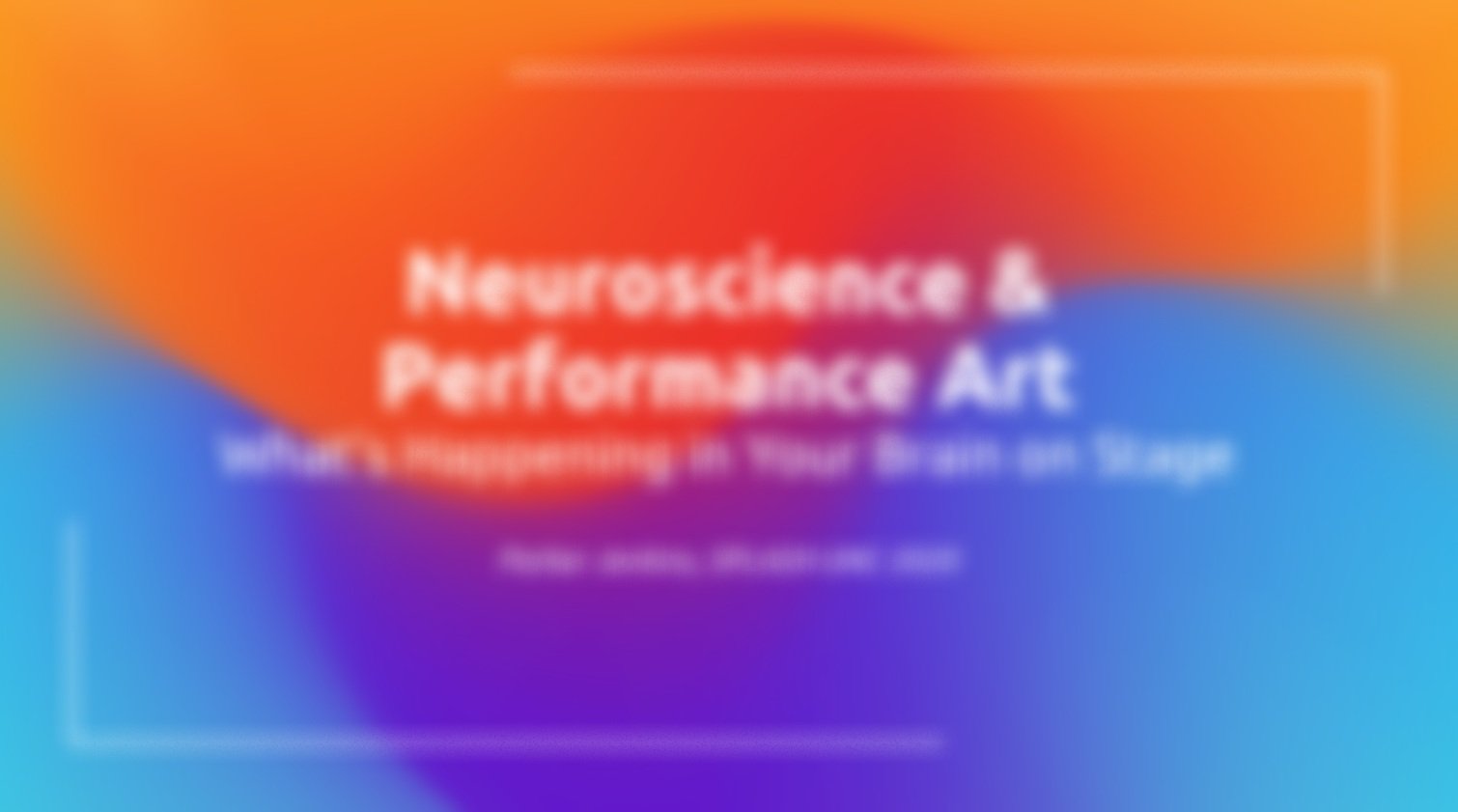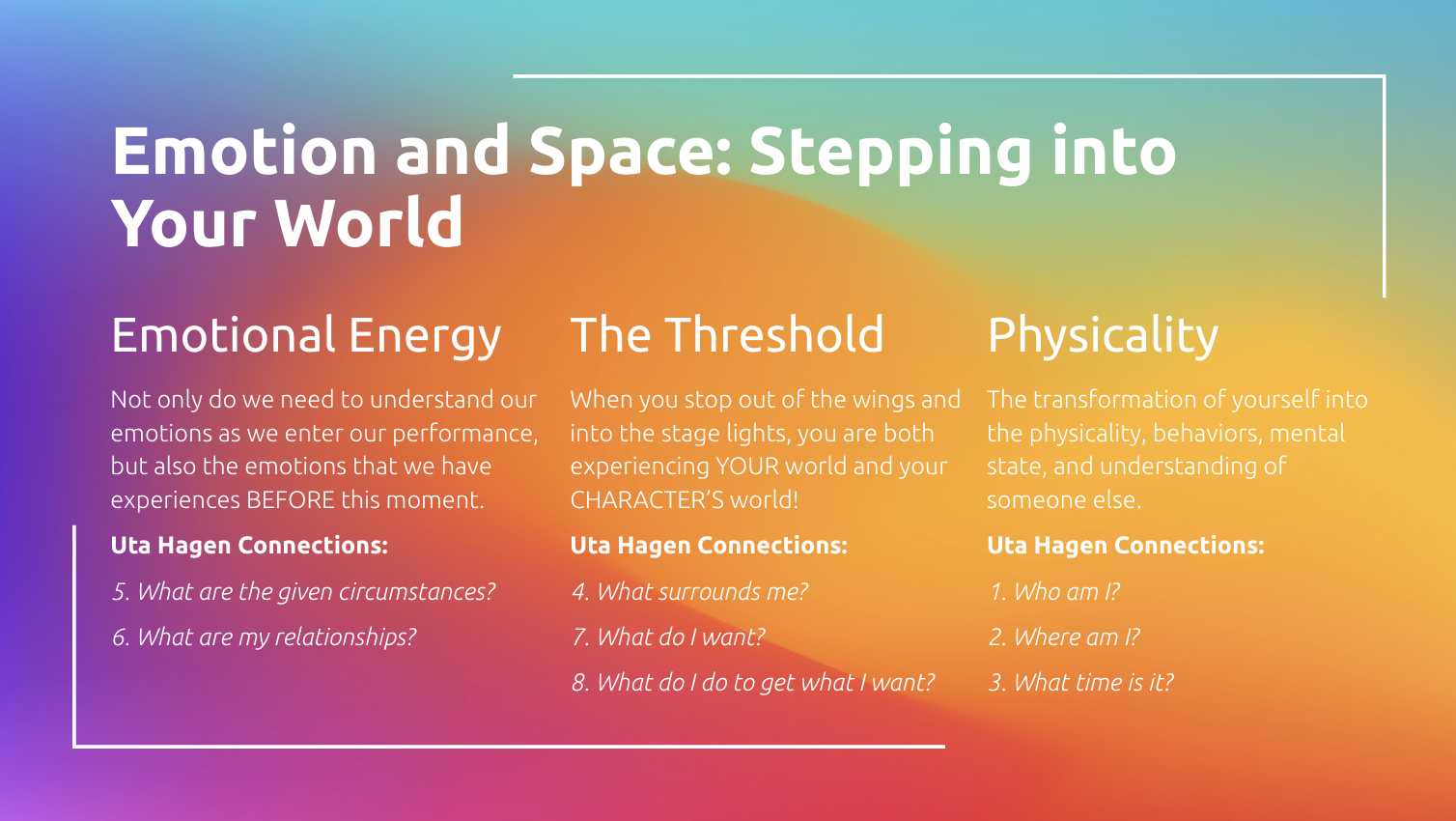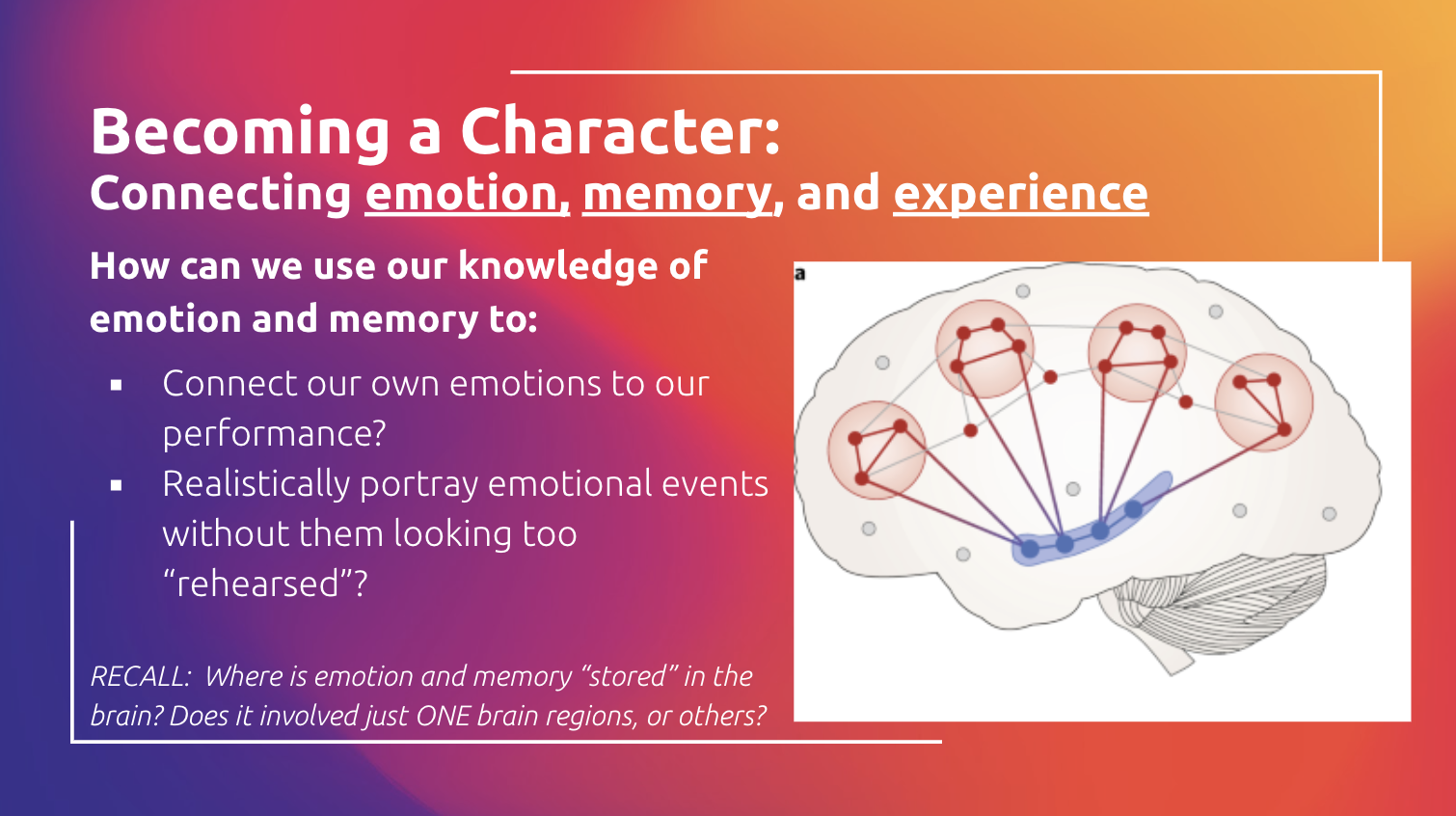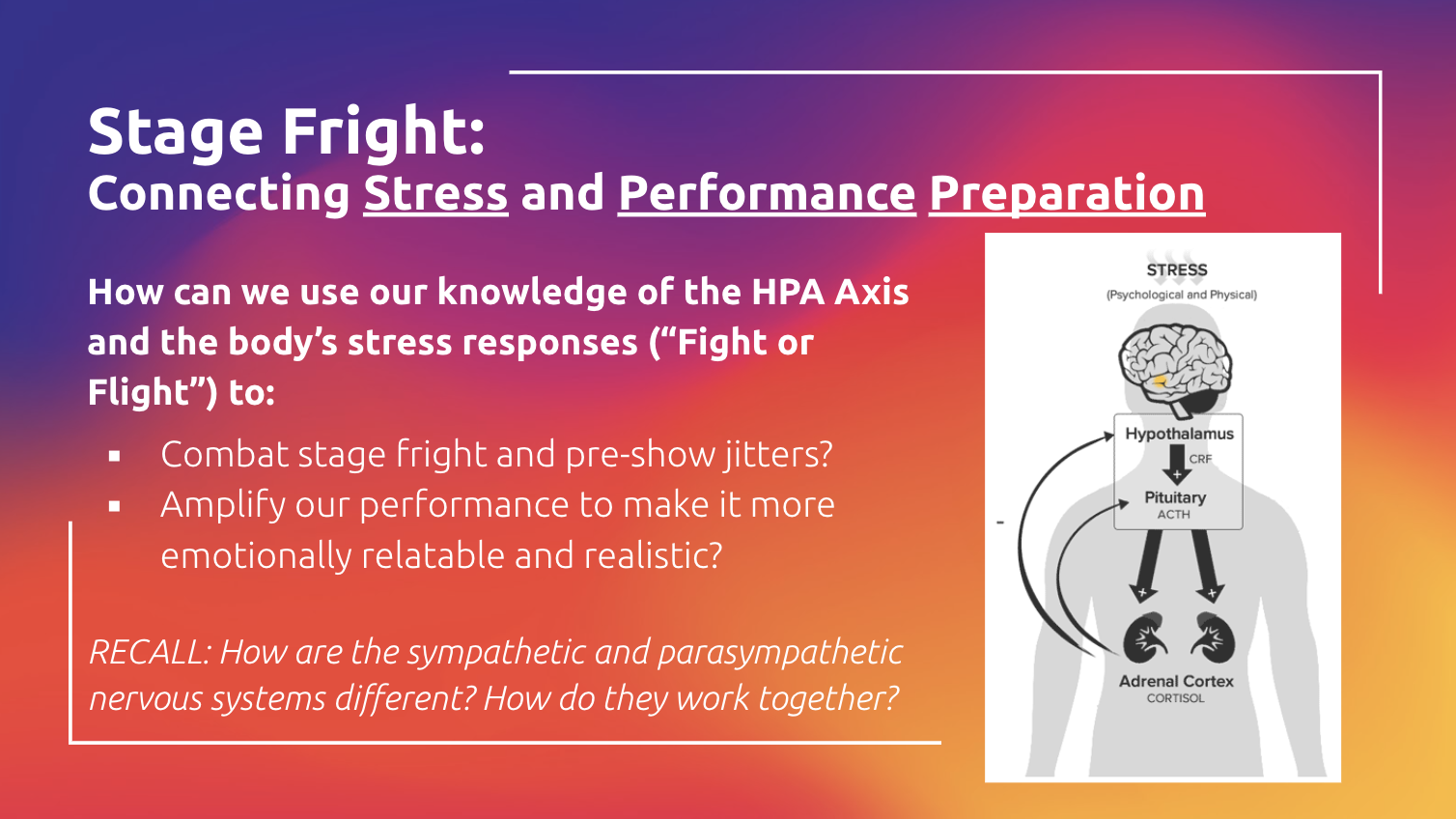
Neuroscience and Performance Art: What’s Happening in Your Brain on Stage
Student Teaching: SPLASH! 2020
Take a look at sample topics from my course below!
⇩
Student Instructor for UNC-CH's SPLASH! 2020 (S1620: Neuroscience and Performance Art: What's Happening In Your Brain on Stage)
Course Description: An academic exploration of fundamentals of neuroscience, introductory acting techniques, and how they combine to create what we see as a performance on the stage… Have you ever wondered what’s happening in your brain when you’re on stage performing? When you step on stage, how the brain is able to overcome stage fright, replicate emotion through acting, and adapt to the atmosphere of a live audience? We’ll look at the neuroscience and psychology behind the performance experience through introductory neuroscience and basic acting techniques, and look at where “art” and “science” intercept!
My artistic philosophy stems (pun intended) from my backgrounds in both theatre arts and science—acting and performance, to neuroscience and chemistry, and beyond. In a world filled with binaries, society has placed these disciplines in separate spheres, effectively communicating to the next generation of students that STEM and the arts are different, distinct, and do not overlap.
I’m here to break out of that mindset. After over four years studying science and drama simultaneously, I’ve come to believe that these two spheres are anything but separate. In fact, science can help explain why we do what we do in performance, and the processes of thinking in theatre help elaborate on what science has to offer. For me, science has made me a better artist, and art has made me a better scientist. Now, as both an artist and a scientist, my goal is to dispel this myth we’ve been taught for the next generation of scientists and artists.
Through SPLASH!, I held two class sessions, filled with a variety of performers—from actors, to singers, to instrumentalists, to students with no performance experience but a passion for art—and we explored the brain science behind our experiences (and the audiences!) on the stage.
From the students:
“It’s so cool to see how the brain and our memories play a unique role in helping us tell a story that we otherwise wouldn’t be able to tell without this understanding.” -11th grade
“This is by far the best class I’ve taken at SPLASH!” -10th grade
“I have horrible stage fright, and now that I understand what’s going on in my head in that moment before the curtains come up, I feel like I have the tools to work on that stage fright and to calm my nerves.” -12th grade
“I really liked how you discussed memory, emotion, and how it all helps us really connect to a character through our own experiences. I’ll definitely be using that in the future!” -11th grade




